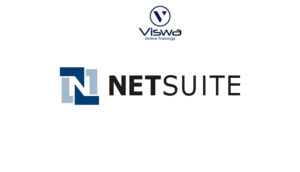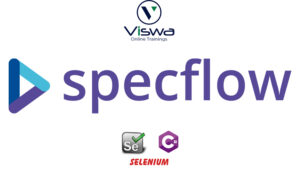Oracle SQL Certification Training
One of the top providers of online IT training worldwide is VISWA Online Trainings. To assist beginners and working professionals in achieving their career objectives and taking advantage of our best services, We provide a wide range of courses and online training.
Learners : 1080
Duration : 20 Days
About Course
The most popular language for interacting with databases and extracting data for use in application development, reporting, and analytics is taught in our SQL (Structured Query Language) course. It is commonplace in many sectors of society and is essential for aspirant data professionals to possess. The skills you need to query and analyse data from sophisticated relational databases will be provided to you through this course, along with an introduction to the SQL language. Join this course if you want to develop your data abilities so you can go up in your industry or change careers to one where you will work with data. Enrol today to earn your certification.
SQL Training Course Syllabus
✔ Basic Concepts
✔ Database Models
✔ First Normal Form
✔ Second Normal Form
✔ Third Normal Form
✔ Basics of S-Q-L
✔ Data types, expressions, operators
✔ Working with queries & Clauses
✔ Creating databases,
✔ Creating tables
✔ Types of constraints
✔ Nested subqueries
✔ Correlated subqueries
✔ Derived tables
✔ Creation of table
✔ Modifying the structure of a table
✔ Dropping a table
✔ Inserting, updating & deleting operations
✔ Operators, Built-in functions, Grouping
✔ Working with multiple tables
✔ Commit
✔ Rollback
✔ Save point
✔ Grant
✔ Revoke
✔ Introduction to Joins
✔ Inner join
✔ Outer join
✔ Cross joins
✔ Unions
✔ Introduction to indexes
✔ Creating, dropping indexes
✔ Clustered & non clustered indexes
✔ Introduction & advantages of views
✔ creating views
✔ altering, dropping views
✔ Creating Cursors
✔ Cursors vs. Select
✔ Types of cursors
✔ Triggers
✔ Functions
✔ Procedure
✔ Backup & Recovery
| Live Instructor Based Training With Software |
| Lifetime access and 24×7 support |
| Certification Oriented content |
| Hands-On complete Real-time training |
| Get a certificate on course completion |
| Flexible Schedules |
| Live Recorded Videos Access |
| Study Material Provided |
SQL Training - Upcoming Batches
Coming Soon
AM IST
Coming Soon
AM IST
Coming Soon
PM IST
Coming Soon
PM IST
Don't find suitable time ?
CHOOSE YOUR OWN COMFORTABLE LEARNING EXPERIENCE
Live Virtual Training
-
Schedule your sessions at your comfortable timings.
-
Instructor-led training, Real-time projects
-
Certification Guidance.
Self-Paced Learning
-
Complete set of live-online training sessions recorded videos.
-
Learn technology at your own pace.
-
Get access for lifetime.
Corporate Training
-
Learn As A Full Day Schedule With Discussions, Exercises,
-
Practical Use Cases
-
Design Your Own Syllabus Based
SQL Training FAQ'S
SQL stands for Structured Query Language. It is the standard language used to maintain the relational database and perform many different data manipulation operations on the data. SQL was initially invented in 1970. It is a database language used for database creation, deletion, fetching, and modifying rows, etc. Sometimes, it is pronounced as ‘sequel.’ We can also use it to handle organized data comprised of entities (variables) and relations between different entities of the data.
Get ahead in your career by learning SQL through VISWA Online Trainings
In 1974, SQL first debuted. One of the most popular languages for relational database maintenance is this one. In 1986, the American National Standards Institute (ANSI) and the International Organisation for Standardisation (ISO) adopted SQL as their respective standards.
- The data structure that includes commands like CREATE, ALTER, DROP, etc. is defined by the data definition language (DDL).
- Data manipulation language (DML): It is used to alter the database’s already-existing data. This group of commands includes SELECT, UPDATE, INSERT, and others.
- Data control language (DCL): It regulates access to the information kept in databases. This category of commands includes the verbs GRANT and REVOKE.
- The database’s transaction actions are handled using the Transaction Control Language (TCL). This group of commands includes COMMIT, ROLLBACK, SET TRANSACTION, SAVEPOINT, and others.
A table is a collection of data that has been arranged into rows and columns. Users can store and display records in a structured style thanks to it. It resembles worksheets in a spreadsheet program. Here, columns are the attribute of the data items included in a given row, and rows are the tuples, which represent the simple data item. Rows are horizontal, whilst Columns might be classified as vertical.
Fields are the components to provide the structure for the table. It stores the same category of data in the same data type. A table contains a fixed number of columns but can have any number of rows known as the record. It is also called a column in the table of the database. It represents the attribute or characteristics of the entity in the record.
Example
Table: Student
Field: Stud_rollno, Stud_name, Date of Birth, Branch, etc.
An organized collection of data that is divided into tables, rows, columns, and indexes is known as a database. It assists the user in regularly finding pertinent information. Data access, data modification, data retrieval, data saving, and data management are all made incredibly simple by this electronic system. Due to its great operational ease and ease of use, almost every organization employs a database to store its data. The database gives us perfect access to the data and enables us to carry out necessary operations.
The following are the common features of a database:
- Manages large amounts of data
- Accurate
- Easy to update
- Security
- Data integrity
- Easy to research data
Reviews
Trustindex verifies that the original source of the review is Google. I had a great experience with the Viswa Online Training. The course content was well-structured and covered all the essential topics in a very practical and easy-to-understand manner. The trainer was knowledgeable, approachable, and explained complex concepts with clarity. The mentor was also supportive throughout the training, always ready to guide and clarify doubts whenever needed. Their friendly and encouraging nature created a comfortable learning environment, which made the training even more effective. Overall, I highly recommend this training center to anyone looking to upskill.Trustindex verifies that the original source of the review is Google. Best training institute.Trustindex verifies that the original source of the review is Google. I am grateful for the opportunity to participate training with Viswa Online Training's. The training was highly informative, well-structured, and effectively covered the key concepts. The instructor's expertise and interactive approach made the learning experience engaging and practical.Trustindex verifies that the original source of the review is Google. Excellent training to immerse in Snaplogic. Benefiting from Trainer Subbu knowledge is a privilege.Trustindex verifies that the original source of the review is Google. Nice training institute. Thanks chaitanyaTrustindex verifies that the original source of the review is Google. VISWA Online Trainings is best IT training provider for SharePoint SPFX Training and best faculties with lot of patience and practical experience. Best place to work excellent training by experienced faculties awesome tech support.Trustindex verifies that the original source of the review is Google. It was a great learning experience for Oracle Apps DBA, Trainer has handy experience in the subject also his teaching style was perfect to grasp the knowledge. Study materials, Software and sample practical problems provided was excellent. I'll recommend VISWA Online Trainings for Apps DBA, already I have recommended to my friends and collogues.... Thanks, Chaitanya, for a great learning experience.Trustindex verifies that the original source of the review is Google. The introduction to SAP Ariba with Rohith and the experience were wonderful. The instructor was really helpful and skilled. The course material was thoroughly and credibly covered. Many thanks, Team.Trustindex verifies that the original source of the review is Google. Excellent way of delivering concepts and PowerShell Online Training.



